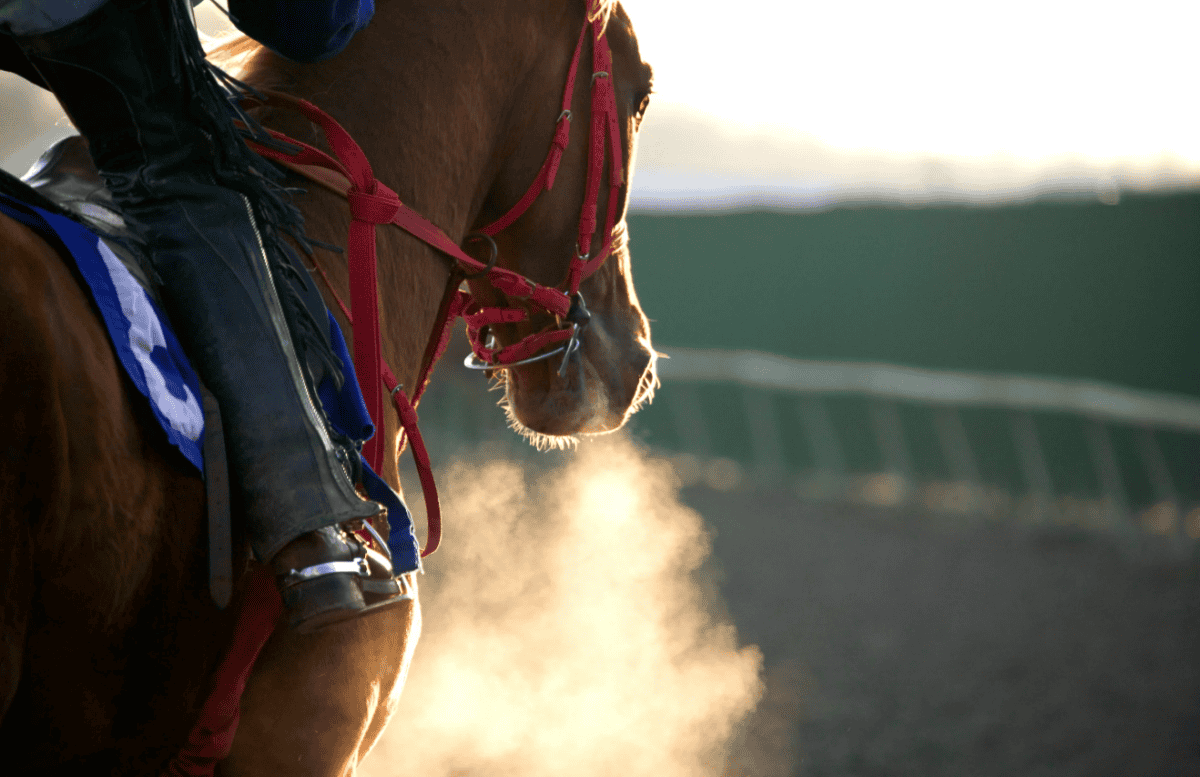Competed at the top level of any sport can often be a very testing situation, with pressure placed on athletes to maintain lofty levels of performance with millions of dollars worth of prize money on the line throughout the season. Think horse racing success.
Nowadays, there is greater understanding when it comes to understanding the pressure that top-quality athletes need to contend with throughout their careers, and helping those that need additional help to maintain a healthy mental wellbeing.
Horse racing jockeys are no different to this rule, as there are few professional athletes that are questions as much for their performances than a rider of a horse in one of the world’s biggest races. But, what are some of the factors that horse racing jockeys need to contend with when it comes to maintaining a healthy wellbeing?

Riding Under Increased Pressure
Horse racing is one of the world’s most dangerous sports, as there are few that see humans put on animals travelling at over 30 mph, this is only made even more dangerous when you consider that National Hunt racing sees horses travel at these speeds while also jumping obstacles over longer distances. However, the physical pain of a fall is only half the story for a jockey, as they will likely need to pick themselves off the floor in more ways than one if they were to endure disappointment on the track.
Jockeys will have to compete at a high level throughout the season to ensure that they are given a strong book of rides, especially when it comes to competing in some of the world’s biggest races. Only riders with proven winning records will be picked up by trainers and owners to take rides, as these will be seen as the best chance of gaining wins on track.
Winning is the name of the game when it comes to horse racing, as trainers and owners are unlikely to side with jockeys that don’t have proven records on track.
According to Kentucky Derby racebook TwinSpires, the biggest reason for this is down to the fact that the money on offer in the sport is eye-watering, with big race victories likely being enough to earn life changing returns for the yard. Therefore, there is constant pressure on a jockey to deliver wins on a regular basis to ensure that they have a long-term future in the sport.
Pressure From Fans
Like most sports, horse racing has become a very popular sport to watch among the mainstream audience, meaning that respected broadcasters now offer live coverage of the sport throughout the season. This has only put more pressure on the jockeys to achieve horse racing success when the biggest races on the calendar come around, as there will be more eyes than ever on how they perform.
Analysis of races is now very popular among the best broadcasters of horse racing, with some pundits opting to show what a rider could have done differently in order to enhance their chances of claiming victory. But, the biggest pressure that has come in the sport has been introduced since the popularity of social media, which has given faceless accounts the chance to bombard and hound jockeys with abuse if they have backed one of their runners with no success.
Losing is as much a part of horse racing as winning is, and there is no humanly way possible for a jockey to ride a winner in every race that they have a ride. But, the lack of transparency on social media means that users are able to get away with saying what they like to jockeys that have social accounts. This is something that is out of the jockey’s control, but more should be done to protect athletes across the board by the social media platforms, as negative comments have a hugely damaging impact on the mental healthy of a professional athlete.
Depression Incredibly Common Among Jockeys
One of the most staggering claims was made by former jockey Mark Enright, as he revealed that he suffered with mental health issues throughout his professional career in the saddle. His comments were backed up by research conducted in Ireland, which found 50% of jockeys within the country met the criteria for depression.
As well as having the stress of winning races regularly to secure their long-term future within the sport, the study also found that making weight also negatively impacted a jockey’s way of life, with many claiming that it has destroyed relationships, as well as their social event engagements.

Jockeys in Ireland were also focal about the other issues in the sport that contributed to their negative mental health, with many claiming that there was no care for the riders in terms of the workload schedule that they must follow throughout the season.
With no off-season, many jockeys will be in competition throughout the year, with some not even enjoying one day off to see friends and family. As well as that, travel is also a huge issue, with many having to travel huge distances across the country and world to take rides.
Mental Health & Horse Racing Success
Many jockeys have called for major changes to be introduced within the sport, with mental health issues being at the heart of any potential plans. However, there has not yet appeared to be any kind of leniency on plans in terms of reducing the workload, with the BHA in fact following an opposite plan, with the recently introduced Sunday evening race cards not going down well with riders.
However, governing bodies are beginning to take mental health more importantly, as there are no specially trained doctors on hand for athletes to talk to about any issues that they are currently going through, whether it stems from their business on track, or a stress surrounding their future within the sport.
More can always be done within all sport to maintain that the stars involved feel safer, but radical changes are still required within horse racing success before it can be revered as a safe career path for aspiring jockeys from all walks of life.


